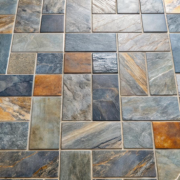There are two types of water, hard water and soft water. The former contains magnesium and calcium which could result in a build-up on your sinks, fixtures, and tubes.
This can significantly reduce the effectiveness and life span of your home appliances and plumbing. It also makes it harder for the water to foam therefore requiring much soap usage during washing without forgetting to note it’s unsafe to drink.
If you are facing any problem related to this, you might have considered buying a water softener to get rid of the problem.
Wondering how it works or needs tips on ways to select the best for your home, read on as we highlight all answers to this.
How water softeners work
Water softeners get rid of hard water minerals through a process called ion exchange. The water softener system is designed such that the water enters the mineral tank and passes through a bed of spherical resin beads.
The beads are typically made using polystyrene and are sodium ion charged. On the other hand, the resin beads are anions ― negatively charged.
The major minerals the water-softening system removes is calcium and magnesium and replace them with sodium ions. This is possible because calcium and magnesium are cations; negatively charged, and since unlike charges attract, they become attached to the negatively charged resin beads leaving sodium in the water.
This gets rid of the water hardness and subsequently, the resulting soft water flows out of the system.
Meanwhile, there are other techniques employed by some salt-free water softener systems.
- Magnetic softeners are developed such that there are magnets in or around water pipes such that the generated magnetic field alter the water. The major disadvantage of this method is that the water will return to the hard stage within 48 hours in the absence of a magnetic field.
- Reverse osmosis (RO) softeners use pressure to displace and remove impurities through a semi-permeable membrane. This removes about 98% of the impurities but is still not as effective as the ion exchange water softeners.
Tips to choose the best water softener for your home
There are lots of water softeners on the market today and deciding on which one for your home can be confusing. Here are some tips to make your decision easier;
- Evaluate the water hardness
Water softeners come with different softening capacities. Take an evaluation of your water hardness. Some suppliers offer testing kits for this purpose.
Another thing to consider is the volume of water that would be needed to be processed.
The bigger the house or number of occupants, the more water that will be needed. This invariably signifies there may be a need for a higher amount of hard water to be softened. - Diet and preference
Check the technique that your water softener is designed to use. For instance, if your diet restricts you from consuming sodium, you may want to avoid using softeners designed for the ion exchange process.
Alternatives such as RO softeners and magnetic softeners can be used instead. - Price and maintenance cost
Compare prices of water softeners and their efficiency before settling for any. Some may come with different features that you may not need in your home. Going for the one with only the main features you need can save you some expenses.
Another important thing to check or ask the seller is the maintenance cost. You don’t want to purchase a water softener that needs regular maintenance that demands lots of time and energy.
- Check testimonials/reviews
Don’t take the word of a seller as a guarantee for the efficiency of their product. Read online reviews about the water softener you plan to purchase.
Some sellers have testimonials from previous customers on their websites. Read all of these online reviews to ascertain the capability of the product.
Advantages of water softener
- Softer skin and healthier hair
- Bathing with hard water can damage your skin and hair. Usage of soft water on the other hand can give you softer skin and a better hair appearance.
- Reduces soap and detergent usage
Hard water doesn’t lather easily. This is because the chemicals in them instead of foaming, bind themselves to the minerals in the water, hence the need for more soap or detergent before they can lather.
- Faster warm-up with water heater
When you try to heat hard water, the minerals in them solidify, increasing the amount of heat needed to get your water hot. The solidification of the water minerals can damage your plumbing and at the same time would increase your energy bill.













Comments